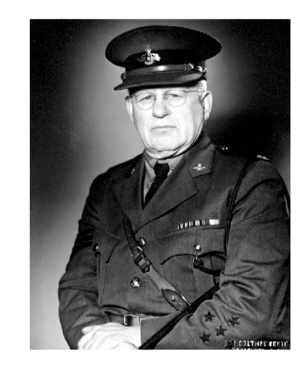Sperry Cline facts for kids
Sperry Cline (born May 26, 1881, died May 8, 1964) was a brave Canadian police officer and writer. He worked in the wild frontier areas of British Columbia. He was also awarded the Distinguished Conduct Medal for his bravery.
Early Life and Adventures
Sperry Cline was born near St. Thomas, Ontario. His family had a German background. When he was a teenager, he went to England. There, he joined a group of soldiers who rode horses, called the British South Africa Company's cavalry.
He rode with a special force to protect a city called Bulawayo in Africa. After that, he stayed in South Africa. He later fought in the Boer War, a conflict in South Africa. For his bravery during this war, he received the Distinguished Conduct Medal. This medal is given for great courage in battle.
Life as a Frontier Police Officer
After getting better from an illness called malaria, Cline came back to Canada. In the winter of 1904, he moved to Hazelton, British Columbia. This was a new and wild area at the time.
In Hazelton, Sperry Cline tried many different jobs. He delivered mail by using dog sleds, guiding huskies down the frozen Skeena River. He also moved supplies by canoe and worked on a sailing boat. He even worked as a foreman at a mine.
In 1914, he found his true calling. After a bank robbery in New Hazelton, Cline was asked to join a group of people helping the police, called a posse. Their job was to catch the robbers. Soon after, Cline joined the police force in Hazelton. He would be a police officer in British Columbia for the next 32 years.
People gave him the nickname "Dutch." This was because he often used words from different languages like Cape Dutch, Swahili, and Chinook when he spoke English.
While in Hazelton, Cline became friends with a famous mule-packer named Cataline. They often had long talks. These conversations sounded very unusual because both men spoke in many languages at once. Cline and Cataline understood each other perfectly, even with their mix of words.
As a police officer in the frontier, Cline often had to do more than just arrest people. He also acted as the lawyer for the police in court. Through these court cases, he met a lawyer named Stuart Hendersen. In 1919, Cline asked Hendersen to represent Simon Gunanoot in a famous trial. This case was very well-known across the country, and Gunanoot was found not guilty.
Sperry Cline became known for his common sense and honesty. He often found practical ways to solve problems instead of always following strict rules. He even had a wheelbarrow he called the "Hazelton Patrol Wagon." He used it to take people who had too much to drink at local hotels to the jail.
His experience with dog sleds was very useful. Once, he took a dog team 170 miles out of town to find a missing worker along the Yukon Telegraph Line. It turned out the worker had sadly frozen to death.
In the 1920s, Cline left Hazelton. He joined the police force in Smithers, then in Chemainus. Later, he was transferred to the Police Training School in Victoria.
Becoming an Author
Sperry Cline retired from the British Columbia Provincial Police in 1946. After retiring, he started writing about his adventures in Hazelton. He called his series of articles Policing the Skeena.
Many of his stories were published in a magazine called BC Outdoors. Some of his stories also appeared in Art Down's Pioneer Days in British Columbia book series.
Cline also worked with a historian named Wiggs O'Neill. Together, they wrote a book called Along the Totem Trail: Port Essington to Hazelton.
Sperry Cline passed away in Burnaby on May 8, 1964.
Recognition
To honor Sperry Cline, a mountain peak near Hazelton was named Cline Peak. A creek in the same area was also named Sperry Creek.
 | Lonnie Johnson |
 | Granville Woods |
 | Lewis Howard Latimer |
 | James West |


